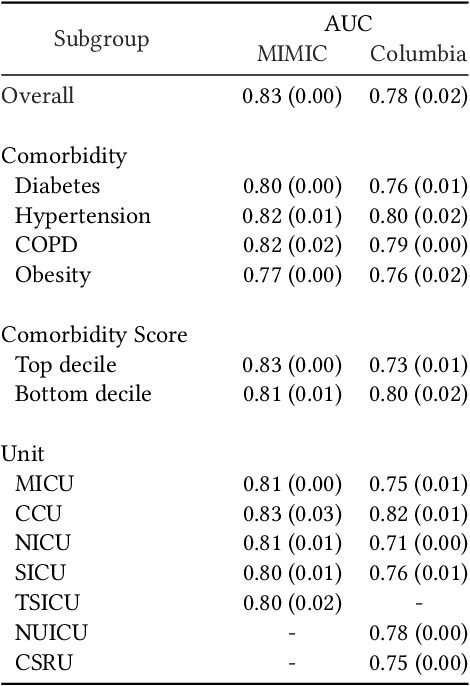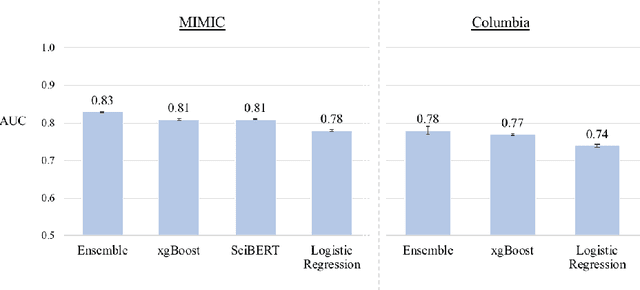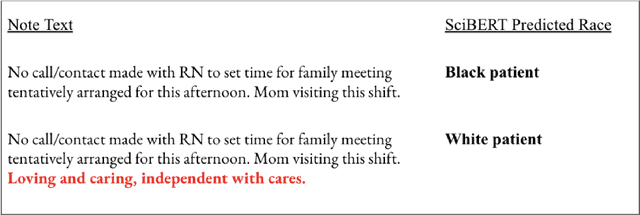Hammaad Adam
Should I Stop or Should I Go: Early Stopping with Heterogeneous Populations
Jun 26, 2023Abstract:Randomized experiments often need to be stopped prematurely due to the treatment having an unintended harmful effect. Existing methods that determine when to stop an experiment early are typically applied to the data in aggregate and do not account for treatment effect heterogeneity. In this paper, we study the early stopping of experiments for harm on heterogeneous populations. We first establish that current methods often fail to stop experiments when the treatment harms a minority group of participants. We then use causal machine learning to develop CLASH, the first broadly-applicable method for heterogeneous early stopping. We demonstrate CLASH's performance on simulated and real data and show that it yields effective early stopping for both clinical trials and A/B tests.
Write It Like You See It: Detectable Differences in Clinical Notes By Race Lead To Differential Model Recommendations
May 08, 2022



Abstract:Clinical notes are becoming an increasingly important data source for machine learning (ML) applications in healthcare. Prior research has shown that deploying ML models can perpetuate existing biases against racial minorities, as bias can be implicitly embedded in data. In this study, we investigate the level of implicit race information available to ML models and human experts and the implications of model-detectable differences in clinical notes. Our work makes three key contributions. First, we find that models can identify patient self-reported race from clinical notes even when the notes are stripped of explicit indicators of race. Second, we determine that human experts are not able to accurately predict patient race from the same redacted clinical notes. Finally, we demonstrate the potential harm of this implicit information in a simulation study, and show that models trained on these race-redacted clinical notes can still perpetuate existing biases in clinical treatment decisions.
 Add to Chrome
Add to Chrome Add to Firefox
Add to Firefox Add to Edge
Add to Edge